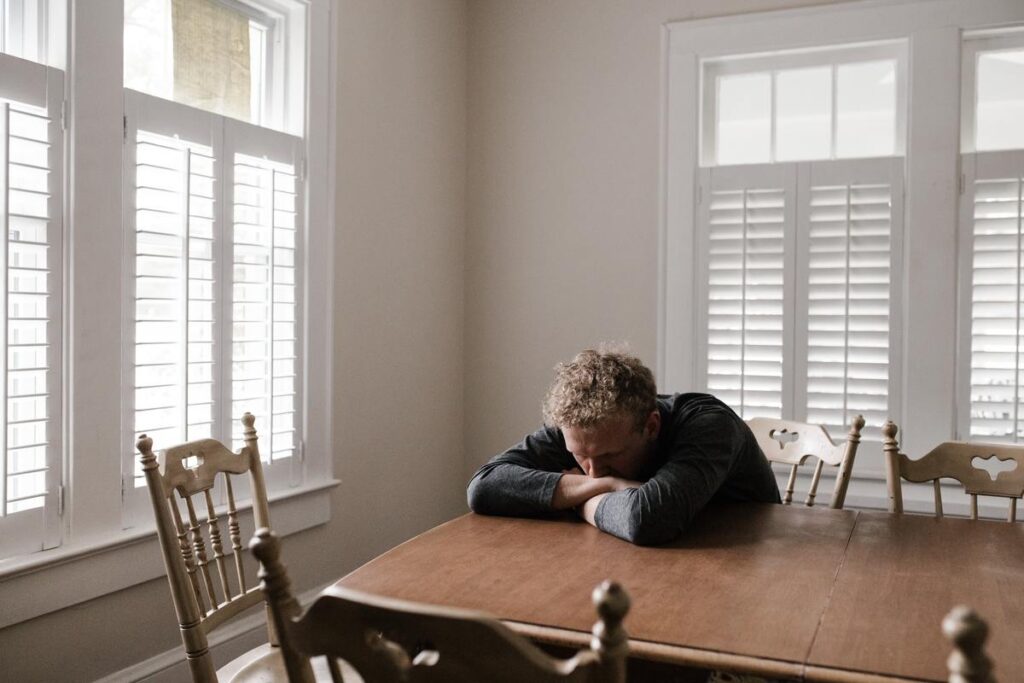
Complex concerns such as depression and addiction can often feel impossible to manage. If you’re handling either of these issues alone, or you’re dealing with both at the same time, it can feel overwhelming to the point of isolation. The good news is that there is help available for those who need it.
Additionally, there is more than one treatment option out there. Those with dual diagnoses can often feel more alone than others, but they can feel more empowered to engage in their healing process. Understanding depression and addiction is important, but so is understanding how to address it when both occur at the same time.
Link Between Depression & Addiction
Did you know that depression is one of the most common mental health disorders in the U.S.? Most adults experience at least one depressive episode in their lives, and when it comes to dual diagnosis, depression and substance addiction can occur at the same time. Both disorders can affect one another, and some people with depression may use substances to ease their feelings, but substance misuse can also trigger mental health symptoms in others—and sometimes cause them.
Locating the right care and treatment for a dual diagnosis is a must. Depression—along with other mental health disorders—can often occur at the same time as addiction, and you can develop either of these conditions first. Self-medicating to combat these feelings is very common, often leading to substance abuse. Mood disorders—along with addiction—have underlying causes such as genetic predispositions, changes in the makeup of the brain, and even exposure to trauma.
Understanding Depression
We all go through periods of life where we feel sad, low, or moody. These are relatable and common feelings, but depression is not the same thing as a general feeling of sadness. It can occur without any reason or warning, and it’s much more than low moods. Depression is a serious condition with physical impacts as much as mental ones. While it may be common, it can be treated and managed. The sooner a person with depression receives help, the more likely they’ll receive the support they need to successfully recover.
Symptoms of depression
Depression isn’t categorized by just one symptom, as it can affect how someone thinks, feels, and interacts in their daily life. Some of these symptoms are common for those who are diagnosed with depression, but not every depressed person will experience some of the following:
- Sadness
- Misery
- Unhappiness that lasts
- Irritability
- Feelings of overwhelm
- Guilt
- Frustration
- A lack of confidence
- Inability to concentrate
- Lack of the want to do anything
- Worthlessness
- Withdrawal from social occasions
- Reliance on substances
Understanding Addiction
When you have a strong psychological and physical urge or need to do or consume something, this is addiction. Over time, you become dependent on the substance itself, and even when you know it could be detrimental to your life or your family, and even when you know it’ll affect your daily life, you can’t help yourself.
Common addictions include:
- Smoking
- Alcohol
- Gambling
- Drugs
- Shopping
- Prescription medicines
- Sex
- Social media
You can be addicted to more than one substance at the same time, and there are plenty of reasons that addictions occur in the first place. In the case of alcohol, drugs, and nicotine, these have a chemical effect on the body which changes the way you feel. These give you feelings of enjoyment and euphoria, and it can be hard to stop using those substances while you ‘chase that high.’
Current studies show that addiction can be genetic, but there are environmental factors involved such as stress, trauma, and pressures in relationships and at work. These should never be normalized, but they are a normal response to stress. Addiction can be a coping mechanism for those with difficult issues, and addictions can become out of control. With feelings of guilt at being addicted to a substance in the first place, depression often follows. Addictions can get out of control very quickly, and if you want to be sure your vice has turned into an addiction, the symptoms can include:
- Chasing a high
- Repeating this process knowing it could ruin your life
- Stealing or selling your things to fund your addiction
- Being risky or dangerous in your behavior
- Reacting angrily and quickly when you don’t get the substance
- Losing interest in anything else
- Having your thoughts consumed by your addiction
- Noticing changes in your eating habits
- Losing excessive weight very quickly
- Not being able to quit due to the fear of withdrawal
It can be highly stressful to live with an addiction, and it can cause damage to relationships, your career, and your personal life. It can ruin your ability to think clearly, to rationalize, and can cause high amounts of stress. Some addictions can cause you to turn violent, and yet addiction can be treated.
Take Time to Be Treated
It takes time to be treated for depression or addiction, and even longer to be treated for a dual diagnosis. However, with the right support, you can ensure that you feel yourself once again. Withdrawal symptoms aren’t pleasant, and it’s not easy to talk about your concerns with anyone, but with our help, you can utilize counseling and medication in conjunction with one another so that you can get back to feeling your best once again.
Don’t wait to get help—our dual diagnosis treatment options at Alvarado Parkway Institute are the best in the area to help get you back on your feet and back with your family. Review our treatment options and put your recovery first—you deserve to be supported, and our experts are here to work with you to begin the process, call (619) 333-7050.